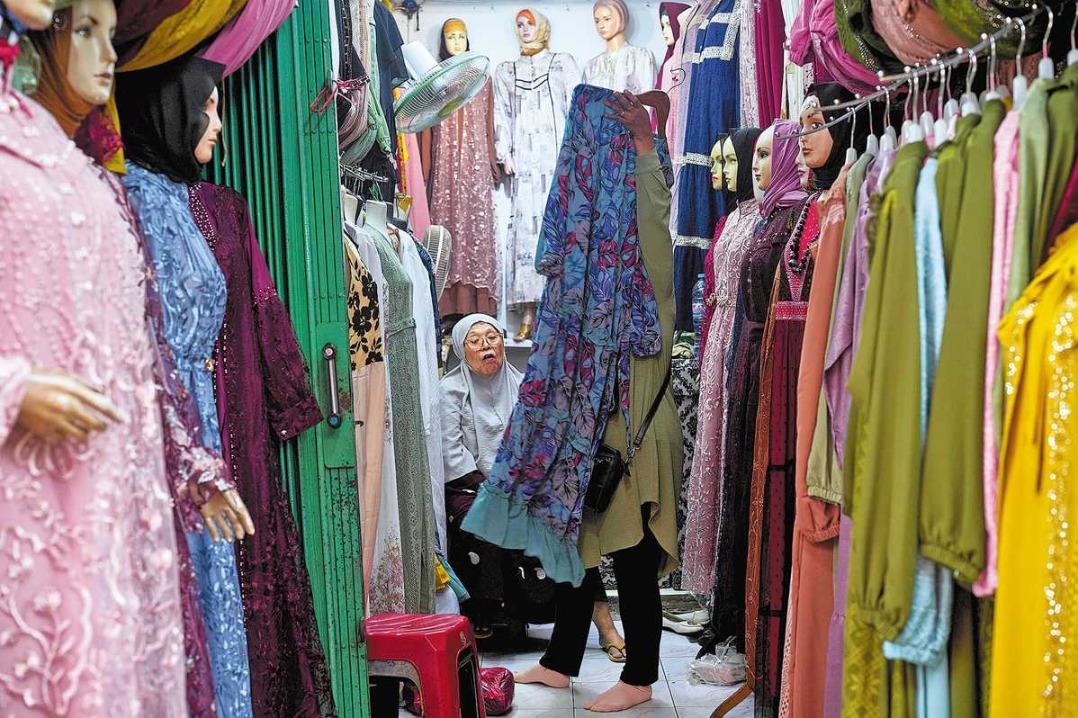Notes on aging for the New Year, keeping your noodle sharp

In 2015, 9.5 percent of the population of China was aged 65 or older. The UN projects this percentage to rise to 27.5 by 2050, roughly 329 million souls.
The number of Americans over the age of 65 is projected to more than double in the next 40 years, increasing from 40.2 million in 2010 to 88.5 million in 2050.
It's well known and accepted that people's mental facilities change with age. Gerontologists in both countries are racing to understand the normal and abnormal changes in cognitive function that come with going gray.
Studying older people can be tricky for scientists for two reasons: They may either be too ill to participate or they may be too well, too active and not have the time or interest.
Cognitive function decline can also be affected by culture, lifestyle, education and a host of other variables.
Also, the onset of dementia is sneaky and can often be misdiagnosed. Insidious is the medical term. Changes in memory are the most common complaints among older adults.
There are several types of memory: the conscious recall of facts and events, including language usage and autobiographical events at specific times and places, and then subconscious memory, like singing a Christmas carol or riding a bike.
No two people age the same. Part of that is genetic; studies suggest that DNA accounts for about 60 percent of the differences in cases. Other factors include illness or disabilities.
But what causes the other differences could hold a key. What are some people doing that others are not doing and could be?
Activities associated with high cognitive functioning in older adults are broken into three groups:
Intellectually challenging things like puzzles, discussion groups, reading, surfing the web, playing bridge or board games or a musical instrument or doing complex jobs.
Physical activity like exercise, dancing and gardening.
And thirdly, social engagement, such as travel, going to shows and concerts and socializing with family and friends.
A recent study of older Chinese-American adults published in the Dec 22 edition of Gerontology reported that social relationships and networking may indeed be a key to cognitive health in older adults.
The study used data from the Population Study of Chinese Elderly (PINE), which started in 2011 and has interviewed more than 3,000 Chinese older adults living in the greater Chicago area.
Age-related cognitive impairment affects 17 percent to 34 percent of older adults who live in communities, the study said.
It also cited the growing concern about older adults and their cognitive health as they age and the growing interest in learning how to improve cognitive performance in later life.
According to the study, a social network has multiple dimensions, including the quantity, structure and quality of social relationships.
Drs Xinqi Dong and Mengting Li of the Rush University Medical Center's Institute for Healthy Aging found that certain factors like more members in a social network, higher frequency of contact, more kinds of relations (family, friend and co-worker), and higher emotional closeness facilitates cognitive function in Chinese older immigrants.
They also found those social network factors may have different impacts on different types of memory.
"Social relationships play a significant role in cognitive function in later life," they write. "Building age-friendly communities may enable older adults to actively participate in community activities to build more connections and facilitate cognitive function.
"With respect to Chinese older immigrants, health-care professionals should be aware of the impact of social network changes on their cognitive function, and take a culturally relevant approach to help them rebuild and strengthen their social relationships in the US."
"Research shows social behavior has effects on individuals' health. Social behaviors are more modifiable compared to genetic factors," Dong said in a statement. "We may help maintain or improve seniors' cognitive function through strengthening their social relations."
With a new year around the corner, there's no time like the present.
As one demographer at the Chinese Academy of Social Sciences told The Atlantic, "The old people of tomorrow are already here."
Contact the writer at [email protected].

































